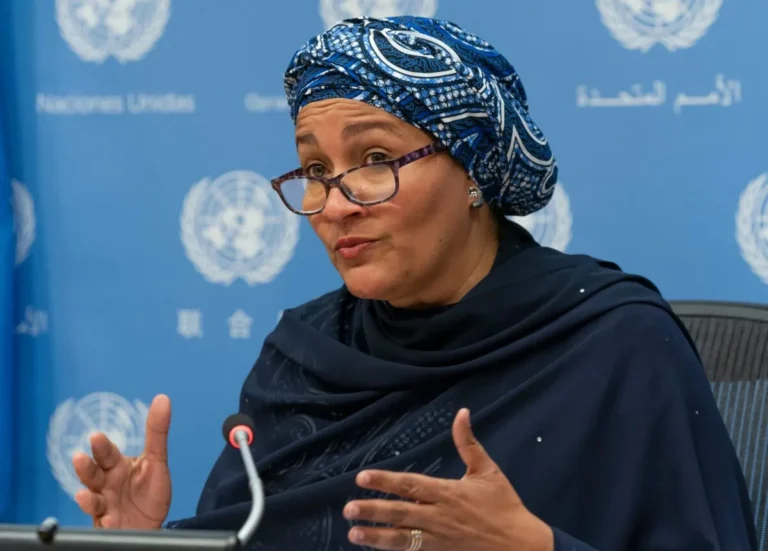Africa remains the epicenter of global terrorism, with Sub-Saharan Africa accounting for 59 per cent of all terrorism-related deaths worldwide, according to the United Nations’ statement seen by APA on Wednesday.
“Terrorism is the most significant threat to peace, security and sustainable development across the African continent today,” the statement quoted Amina J. Mohammed, Deputy Secretary-General of the United Nations, as saying.
Describing the Sahel as “ground zero” for one of the world’s most brutal crises, Mohammed said that for three years, terrorism-related deaths have soared past 6,000, making up more than half of all global fatalities.
In this deadly surge, Burkina Faso is now leading the world in terrorism deaths with a staggering 68 per cent increase and “little support to help reverse the trend”, she said.
Painting a bleak picture of the threat’s complexity, Mohammed said Al-Qaida and Da’esh affiliates have spread their deadly tentacles to West Africa’s coastal countries, with violent attacks soaring by 250 per cent in two years.
The statement said terrorist groups, such as Al-Shabaab in Somalia, the Allied Democratic Forces in the Democratic Republic of the Congo and Ahlu Sunna Wal Jama in Mozambique, continue to unleash horrific violence. They are not only terrorizing communities, but also inflicting unspeakable acts of sexual and gender-based violence, assaulting children and forcibly recruiting them into their ranks.
“At this rate, in West Africa, the future is at stake,” she warned, stressing that the marginalization of youth, coupled with soaring unemployment, has left an entire generation vulnerable to extremist groups. “If we don’t act, we risk losing this generation to the horrors of terrorism,” she added.
However, she continued, “as terrorism evolves, so must we”. Calling for innovative approaches to counter the scourge, she underscored that “regional cooperation is the linchpin of any effective counter-terrorism strategy”.
Fragmentation of counter-terrorism efforts only serves the perpetrators who thrive by sowing divisions, she pointed out, calling for united and urgent responses focused on fostering dialogue, trust and coordinated action.
African Solutions to African Problems
“The gravity of the threat caused by the exponential growth of terrorism in Africa is overwhelming and startling,” observed Bankole Adeoye, African Union Commissioner for Political Affairs, Peace and Security. In 2024 alone, the African Union Counter-Terrorism Centre recorded over 3,400 attacks on the continent, which resulted in over 13,900 fatalities. Africa is “facing a daunting challenge”, he said, stressing: “We have reached a tipping point, and we must act together.” For their part, he said that “our leaders in Africa continue to demonstrate the spirit of African solutions to African problems that works for all”.
As an example, he pointed to the Multinational Joint Task Force in Chad and the African Union Support and Stabilization Mission in Somalia (AUSSOM), which form strategic pathways to peace-building and promoting socioeconomic development in post-conflict settings.
“These models are not merely beneficial, but essential for Africa’s future,” he said. Outlining the African Union’s efforts to promote “development-focused counter-terrorism”, he stressed that swift activation of resolution 2719 (2023) “would be a significant step forward for the African Union in its counter-terrorism initiatives”.
MG/as/APA


